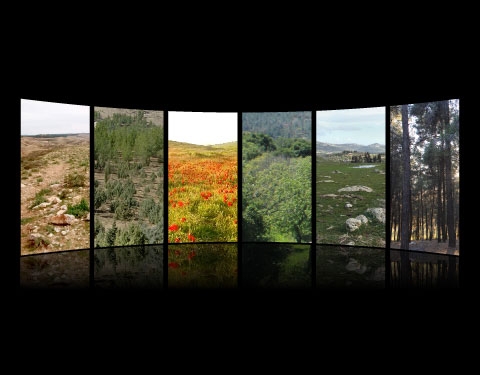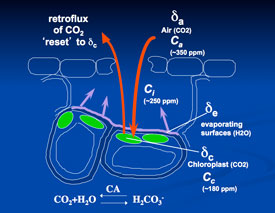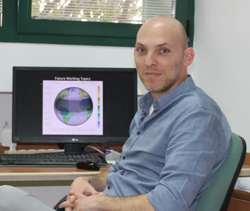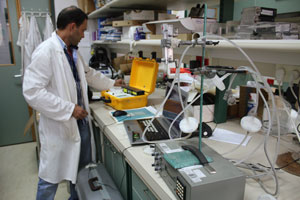In the ecophysiology (Ecophys) lab we investigate processes at the physiological scale that underlie large-scale ecosystem and atmospheric observations. These studies include studies of carbon, water, and biogeochemical tracers at the tissue, leaf, plant, leaf, soil patch scales under control conditions.
Understanding leaf-scale gas exchange, including photosynthetic CO2 fixation, and the limitation to CO2 supply in due to mesophyll, stomatal and boundary layer resistances is critical to understanding canopy gas exchange at the ecosystem and, ultimately, global scales.
Similarly, water flux dynamics in the Soil-Plant-Atmosphere requires detail understanding of water vapor exchange by leaves, as well as determination of the hydraulic system in stems that transport water from the soil to the leaves. Study of cavitation and embolism is key to understand ecosystem hydrology and requires laboratory measurements and control experiments.
Furthermore, at the ecosystem and global scales we often must rely on using tracers, such as stable isotopes, including 13C and 18O, and development of new tracers, such as carbonyl sulfate (COS). The use of such tracers as indicators of biological activities critically depends on understanding the small-scale processes that control such ‘signals’, which must be investigated under lab conditions.
To address all these issues, “micro-cosmos” experiments are very useful. They permit a tight control over the ambient conditions, and the influx and out flux of material and energy in the system, which cannot be achieved under field conditions.
Our Ecophys lab is equipped for the full range of leaf-scale gas exchange research (CO2, H2O, energy), and the analysis of stable isotopes by Isotope Ratio mass spectrometers (IRMS), and trace gas analysis by laser spectroscopy (carbonyl sulfide, COS, N2O, CO). The lab also provides the analytical capabilities to analyze samples collected in our field sites. Such samples include water, organic material, and air samples, and the analyses done in the lab include the isotopic composition (13C and 18O), elemental analysis (CHN), and water potential and hydraulic characteristics.
The laboratory is managed by our lab technician, Efrat Schwartz, and used in on-hand fashion by our students and postdocs.





